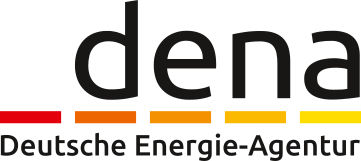
Climate protection made in Germany: REEFUELERY relies on state-of-the-art liquefaction technology and continues to drive forward the energy transition in heavy goods transport with its own production of the renewable fuel REEFUEL, consisting of bio-LNG and eLNG.
Fulda/Burghaun, August 2023. The REEFUELERY construction project, one of the world's largest liquefaction plants for biological and synthetic fuels, has reached a significant milestone. The delivery of the four 300 cubic meter storage tanks for REEFUEL (Bio-LNG & eLNG) last week marks an important step forward in the realization of this groundbreaking project.
With access to the Central Germany Interconnector Pipeline (MIDAL), the facility is being built in a strategically ideal location. Green hydrogen generated by wind energy and biomethane from certified organic waste will be used to produce the renewable fuel REEFUEL. Biomethane and e-methane are liquefied at minus 162 degrees Celsius to produce bio-LNG and eLNG. The project, a joint venture between avanca Energy AG and Erdgas Südwest GmbH, celebrated the symbolic ground-breaking ceremony for the liquefaction plant at the end of April 2023. With an investment volume of around 50 million euros, the project represents a significant step towards a climate-friendly transport sector by reducing the ecological footprint by up to 550,000 tons of CO2 per year.
Construction work is currently in full swing. The REEFUELERY is scheduled to go into operation in 2024 and produce up to 180 tons of bio-LNG and eLNG per day for Alternoil's renewable fuel REEFUEL. This will enable around 4,500 LNG trucks to be operated in a climate-neutral manner. Regional and centralized production and an optimal connection to the Alternoil filling station network can save further CO2 emissions along the entire value chain. This makes it possible to exploit economies of scale, guarantee stable, competitive prices for end consumers and thus create independence.
Benedikt Rolfes, Project Manager at REEFUELERY GmbH, is delighted that the construction work is proceeding according to schedule: "The major and significant progress in the construction process allows us to look forward to the coming year with confidence. We look forward to soon being able to produce our own organic and synthetic LNG and offer it in large quantities via the nationwide Alternoil network."
The delivery of the four 300 cubic meter storage tanks for biomethane represents a key milestone in the construction phase. The double-walled tanks were manufactured by Lapesa in Spain especially for the project in Fulda.
Once the gaseous biomethane has been processed and liquefied, the four storage tanks will be used to store approx. 540 tons of liquefied renewable fuel for heavy goods transport.
heavy goods traffic and thus ensure a reliable supply to the Alternoil filling stations.
The next major milestone in the tight construction schedule is the delivery of the Compander machine component, which is scheduled for the beginning of September. In addition to the cold box, which was delivered in July, the compander is responsible for the liquefaction process. The heart of the system compresses and expands the cooling medium nitrogen, thereby generating the cold required for the liquefaction process at minus 162 degrees Celsius in the cold box.
The REEFUELERY is a pioneering construction project in the field of renewable fuels that will significantly support the energy transition in the transport sector. By using green hydrogen and biomethane from biological waste, the project is making a significant contribution to reducing CO2 emissions and helping to achieve climate targets.
REEFUELERY GmbH
REEFUELERY is one of the largest liquefaction plants for biological and synthetic fuels and is being realized by a joint venture consisting of avanca Energy AG and Erdgas Südwest GmbH. It is strategically located with access to the Central Germany Interconnector Pipeline (MIDAL). The truck fuel alternative REEFUEL is produced from green hydrogen (e-methane) and biomethane through liquefaction at minus 162 degrees Celsius. The project contributes significantly to the decarbonization of the transport sector and will reduce the ecological footprint by up to 550,000 tons of CO2 per year.
- Alternoil GmbH
- Portlandstr. 16
- 49439 Steinfeld
- +49 54 92 / 55 766 - 0
- +49 54 92 / 55 766 - 20
- info@alternoil.de


